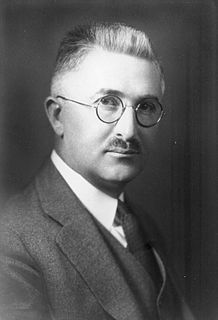A Quote by Immanuel Kant
Fallacious and misleading arguments are most easily detected if set out in correct syllogistic form.
Related Quotes
Most people who live at the border or are familiar with the border know that a Berlin-like wall stretching from San Diego to Brownsville is not necessary. And the costs would be prohibitive. And there are places on the border, such as the Arizona desert or the open terrain around the Big Bend in South Texas, where Mother Nature has created her own barrier that is not easily passable. Or if you do pass through it, you are easily detected.
The first step is to measure whatever can easily be measured. This is OK as far as it goes. The second step is to disregard that which can't be easily measured or to give it an arbitrary quantitative value. This is artificial and misleading. The third step is to presume that what can't be measured easily really isn't important. This is blindness. The fourth step is to say that what can't be easily measured really doesn't exist. This is suicide.
Some of my understanding of what philosophy and ethics is has changed very slowly. One thing that has changed is this for quite a long time I bought-into the idea that philosophy is basically about arguments. I'm increasingly of the view that it isn't. The most interesting things in philosophy aren't arguments. The thing that I think is underestimated is what I call a form of attending. I think that philosophy is at least as much about carefully attending to things as it is about the structure of arguments.
When your troops go to war, the prime minister or the president change overnight from an administrator, dealing with taxation and welfare and health and deteriorating roads, into the commander-in-chief. And it's just become almost unpatriotic to describe Bush's fallacious and ill-advised and mistaken and sometimes misleading actions.
Most of this film, however, is about interpretation - are these people terrorists or freedom fighters? Are they good or bad? Is cutting timber good or bad? And I don't feel like the answers to those questions are simple, so we don't try to answer them for the audience. I wanted to elicit the strongest - and most heartfelt - arguments from the characters in the film and let those arguments bang up against the strongest arguments of their opponents.
Most bloggers have no institutional credibility, and so they must build it, by linking transparently, and allowing you to easily double check their work. But more than anything, because linking sources is such an easy thing to do, and the motivations for avoiding links are so dubious, I've detected myself using a new rule of thumb: if you don't link to primary sources, I just don't trust you.








































